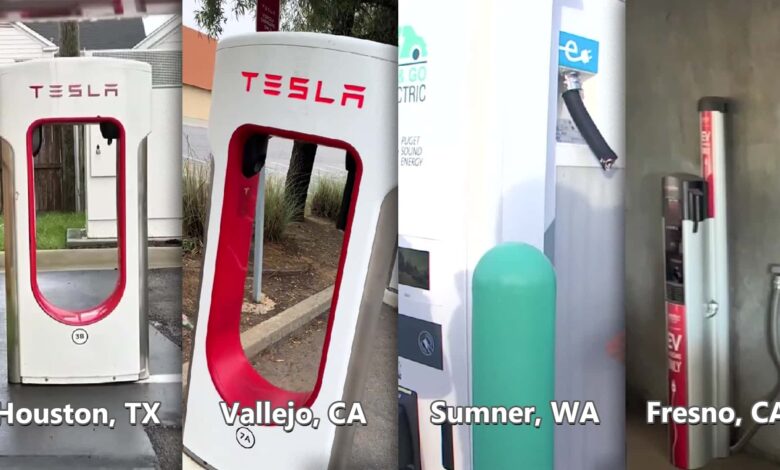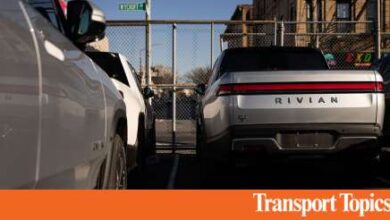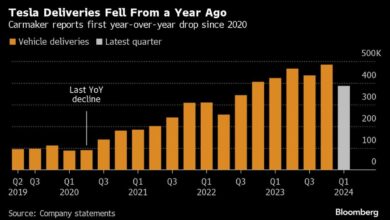Electric Car Charger Vandalism Continues To Surge Nationwide

Criminals are targeting Tesla Superchargers and other charging infrastructure in Texas, California, Minnesota and around the world.
May 16, 2024 at 5:00pm ET
A Tesla Supercharging station in the Bay Area was recently targeted by vandals who severed the charging cord from every stall. A few days prior, 5 separate Supercharger locations were stripped in Houston, TX. In Fresno, CA, over 50 of the city’s 88 EV charging stations have been pillaged – some multiple times.
Since the start of 2024, hundreds of Level 2 (L2) and DC fast charging (DCFC) stalls across the United States have been targeted by scalpers and vandals. Historically, most vandalism against EVs and charging infrastructure was committed by those with anti-EV beliefs or some personal vendetta. But more recently, thieves are just looking to make a quick buck by nabbing the copper material used in cable wiring.
The scrapped metal is then sold to recyclers who pay pennies on the dollar for the raw materials. For a haul that might net criminals $50 at most, the damage often costs cities and charging operators thousands to source and install new charging cords.
Of course, it’s not just about the financial cost to providers. The damage causes major headaches for EV drivers just trying to get to their next destination.
Over the past few days, Tesla Superchargers in Houston, TX have been hit especially hard. As reported by KPRC in Houston, 5 separate supercharging sites were defaced over the past two weeks, disrupting the charging situation in the Texas city. Thankfully, Tesla was quick to notify drivers to avoid these stations as repairs got underway.
A similar situation has developed in the Bay Area. In a video posted by TikTok user k9optima, every charging cord at this station in Vallejo, CA station was recently severed.
It’s not just Superchargers that are being targeted of course. Brand new installations from Puget Sound Energy (PSE) in Sumner, WA have been hit not once, but twice since being installed at the start of the year.
In an interview with KING 5 Seattle, property owner Dave Radcliffe spoke with reporters about how he was happy to play host to the new chargers. But just one week after the ribbon-cutting event was held, local criminals held a cable-cutting event. A month after being repaired, the stations were hit yet again.
“Unfortunately, things like this continue to happen.” Mr. Radcliffe told KING 5 Seattle. He explained their plans to discourage further vandalism in the future by installing large 8-foot tall lights and upping security. “I’m going to provide more security, we’re going to have a direct camera on this area.”
While EV chargers are just the latest target for scalpers, wire theft has been an issue for decades. Everything from extension cords to fiber optic cables and phone lines is fair game.
According to the Washington State Department of Transportation, wire theft has cost taxpayers $1.5 million just since 2021 on public property alone. The city of Minneapolis, MN said 2023 was the single most challenging year for combating wire theft. Last year began with thieves pulling the copper wires from street lights in Minneapolis and thankfully several of them have been caught. But by the end of the year, EV chargers started becoming a prime target.
The City of Fresno, CA is taking a drastic response to the rampant vandalism in its city. Of the 88 L2 and DCFC units installed by the city, 50 have been recently vandalized.
The city is installing new custom cabinets around each of the vandalized units and locking them in off-peak hours. “We do not repair the ones that have been damaged until the steel cabinet has been installed.” Parking division manager Melissa Alaguer told ABC 30 Action News. “And then we repair them, but in addition to that, we have also increased our security.”
The cost of the custom cabinets and their installation for all 88 charging stations will be around $176,000. Whereas the raw materials from all 88 stations combined would probably be worth only $500-$750.
One of the main reasons electric vehicle stations might be targeted is due to their locations. Chargers are typically installed in areas with convenient public access. Such as shopping centers, college campuses, big box retailers, drug stores, fast food restaurants, public parks, etc.
These areas have a lot of foot traffic during the day but are practically deserted at night. Having more chargers installed along major traffic arteries such as major highways might make them less vulnerable. It would also help considerably if more units were installed under well-lit canopies such as gas stations with 24-hour attendants.
We have seen these types of attacks and reported on them in the past. But their frequency is on the rise as more electric vehicle infrastructure is installed worldwide.
Still, sometimes the vandalism is not about the money at all. Property damage is also performed by petty, anti-EV actors all over the world just looking to make life more miserable for others. An individual in British Columbia, Canada dipped the charging plugs of a Tesla Supercharger in a sealant, which when dried rendered the station inoperable.
Last month a Ford Ranger driver used a hammer to smash the stalls of a Tesla Supercharger station in Taupo, New Zealand. Thankfully he lingered too long at the site and was arrested. Hopefully with increased security, lighting and cameras at public charging sites, criminals like this will be brought to justice.
Have you been impacted by charging infrastructure vandalism on your personal property or when trying to charge at a public site? Have you noticed an increased frequency of these incidents in the past year? Let us know your experience below.
Read more



